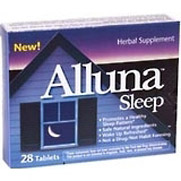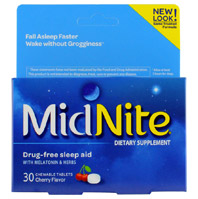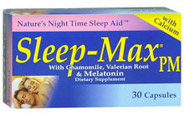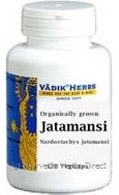3.3 out of 5.0 stars (3.3 of 5)

Alluna Sleep is a product for sleeplessness produced and marketed by pharmaceutical giant GlaxonSmithKline. GSK’s headquarters are in the UK and their operations are based in the US while Alluna is made in Switzerland and primarily marketed in Germany. They do, however, have an English language package sold in the US and England. Alluna has the backing of this supergiant of a company, but what it breaks down to is their attempt to market valerian root as a remedy for insomnia. Since valerian root has grown in popularity, many major companies have begun to package their own brand of the herb. Unfortunately, this packaging doesn’t increase its effectiveness even though it is often carelessly combined with other active ingredients. Alluna is being promoted as an all-natural remedy, which are the best remedies to use when they work. However, there is always a question on just how natural are the products put out by international pharmaceutical corporations. In any case, Alluna is being used by today by many people.
Alluna Ingredients
There are two active ingredients in Alluna: valerian root extract and hops extract. Valerian root enjoys widespread use as an alternative to pharmaceutical drugs, both over-the-counter and prescription. It has great sedative and calming properties in people and this is thought to help in providing a restful sleep by reducing anxiety. Alluna plays on this supposition even though not all sleeplessness is a product of anxiety. It cannot be doubted that valerian root is a great natural alternative to benzodiazepine drugs as it works directly on the human benzodiazepine receptors. It is also effective in treating gastrointestinal pain and IBS.
Alluna and other forms of valerian root are currently being aimed at those suffering from insomnia even though studies have not shown it effective in treating this disorder. Mood elevation and anti-anxiety, for many people, does not translate into restful sleep. Hops has been used for centuries as an ingredient in food and beverages, and only recently has been sold as herbal supplement even though there is no evidence of any beneficial effects . Alluna also contains several inactive ingredients with no explanation, reducing its value as a natural remedy. Some of these are: soy polysaccharide, hydrogenated castor oil, hypromellose, polyethylene glycol, and several artificial colorings.
Alluna Side Effects
Valerian root is a relatively safe herbal supplement but it is not without side effects. Some people have reported stomach ache, apathy, diminished mental capacity, depression, and dizziness. It does have properties to relieve anxiety and many of these side effects are directly related. Driving, operating heavy machinery, or performing dangerous activities are not recommended under the influence of Alluna or any valerian root. There are also reports of people losing sleep while taking valerian root due to unusually vivid dreams and night terrors. Many people may suffer from a hangover-like effect also, reporting difficulty in waking and feelings of lethargy continuing into the next day. A small amount should always be taken first because a few people suffer from allergic reactions causing rash, hives, or restricted breathing. There are neither beneficial nor harmful effects in the use of hops extract.
Buy Alluna
Alluna is primarily sold in Germany where ads and marketing for the product are extensive. In the U.S. it is primarily bought online. It is sold in boxed blister packs of 28 tablets from many herbal remedy outlets. It may also be found in some stores, although it is rare. Packs of Alluna sell at a modest price and some discounts can be found intermittently but generally there are no discounts on quantity. The dosage is 2 tablets per night, so one box is good for two weeks.
Does Alluna Work?
The question on if Alluna works is a tricky one in that it does work for treating anxiety and nervousness, but not for what it is being marketed as – a treatment for insomnia. Valerian root as an insomnia treatment is little more than a fad with no scientific evidence to support any claims of manufacturers. Alluna also falls short of being an all-natural product. It is a shame that these large corporations are trying to subvert actual uses for valerian root to meet market demands for other ailments.



